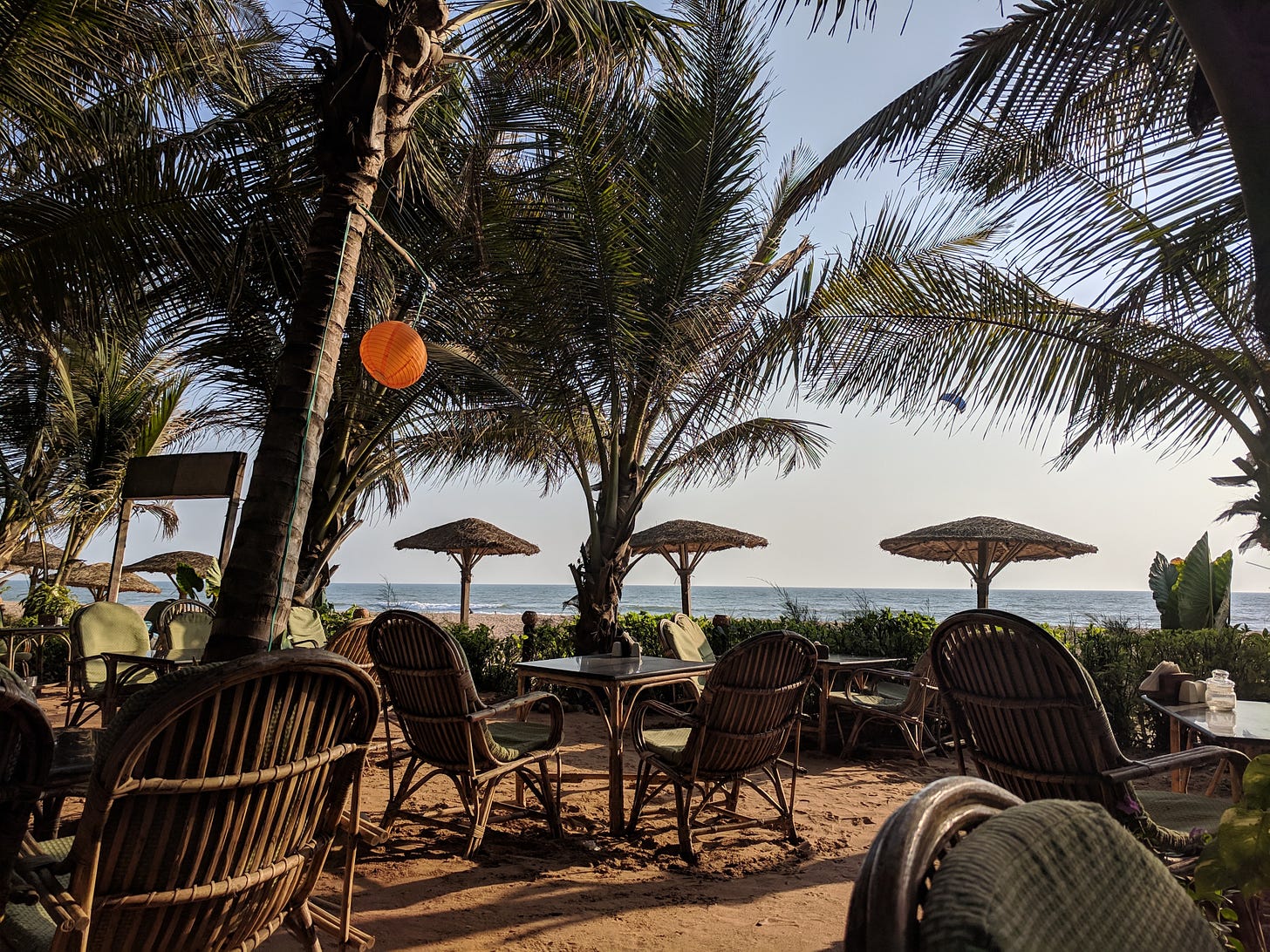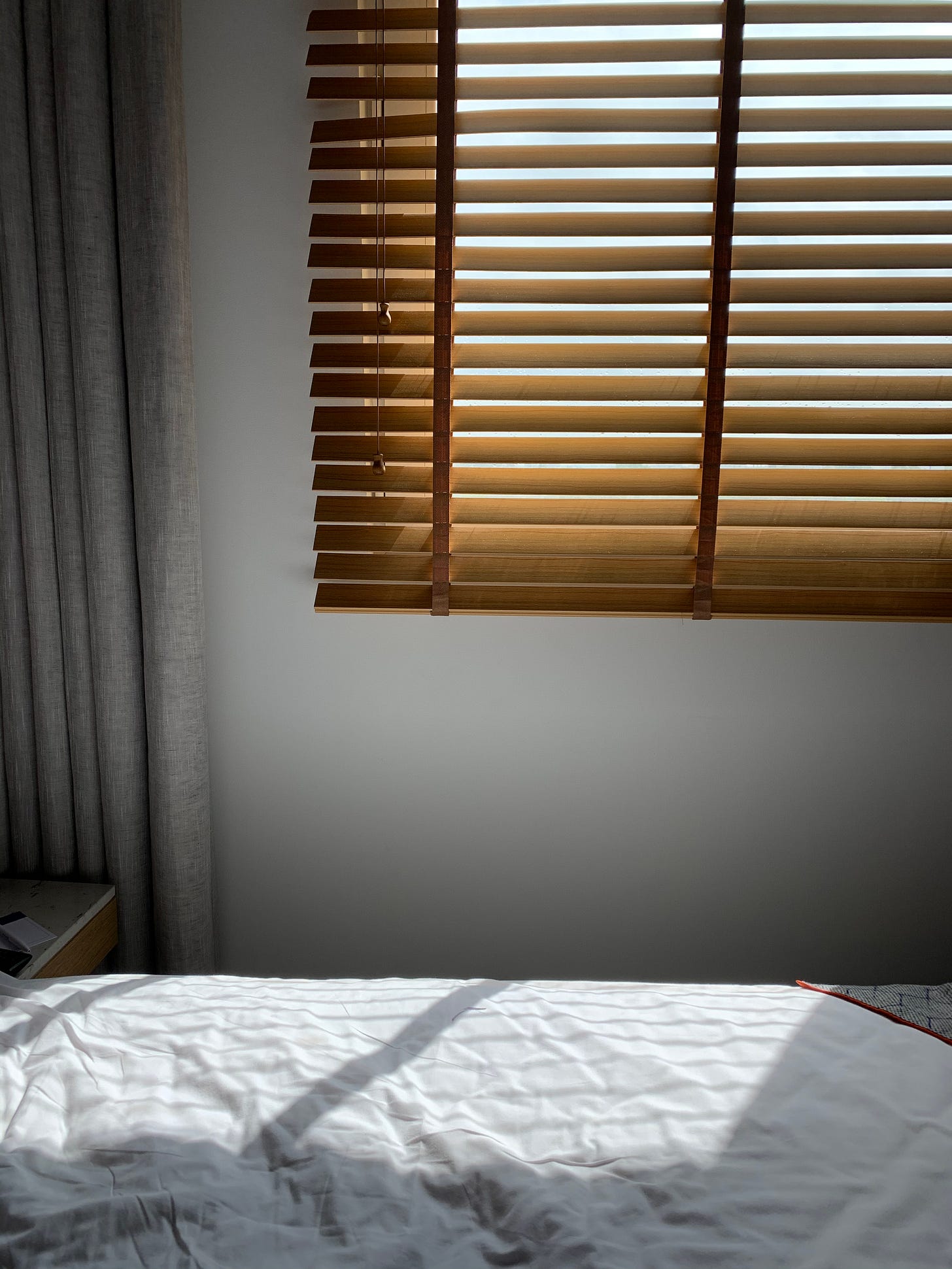It In the building across the street from my home is a toddler. I see him, as he comes in his mother’s arms to look at the world from his window, as I do from mine. He sits on a broad white ledge as if it is a tight rope walk, but settles into his space.
Tiny hands in the air, nervous legs flat. He gets on all fours and leans over carefully to see what’s below. A bird flies by and he follows it fascinated. He then looks at his palms in disbelief, as if they made the magic happen.
As I watched the young man get engulfed in the afternoon sun and shadow, I was reading - Who Belongs to Goa? It offers a window in to the fate of Goa in the post pandemic surge of people moving there.
When you migrate, it is natural to consider what the place offers you. But perhaps we should ask what is it that we bring to it and its people. Culture can’t be rented, it needs to be invested in.
Agonda, two May’s ago, in between a drunken planning of shack business models.
This WFH fueled movements to refuges like Goa speaks of how bad our cities are. Our cities don’t grow anymore, they just expand. Oxymoronic ideas like a gated community. Spaces for true community a premium.
There is an argument here for cities with character and colour. The essay offers a great view on alternatives to the contemporary view of what’s considered modern in architecture. I am a huge fan of the clean lines and minimal contours of modern designs, but cities as boxes have had their run. They need new ideas and spaces like how Victorian London grew its green spaces or how New York saved the High Line.
This past week:
I came across Jazz Keys. I made the first para of this issue into a jazz piece and I’m dead chuffed!
I landed on Matt Steven’s Good Movies as Old Books project. Come on!
Werner Herzog showed up to talk about Chickens. Made me think of some people.
I haven’t seen Mansour Bahrami in years! If you’ve had a tough week, spare these 8 minutes.
Tennis continues to be funny - a tennis match between Charlie Chaplin and Groucho Marx, where after two games Marx pulled out a picnic basket on the court.
Sit for years under a tree.
I live now in a dirty city
That prowls the sky and is my shade
Only a low, uneasy light
Gathers there, a light low-keyed
- Great Spaces, Howard Moss
To consider space, is to consider who is left out of it. In this past year, we normalised the idea of work at home. Like a city stretched by its mass and resources, we have had to carve out our own corners within our homes. Shut doors and desk sizes signal privilege and position, or maybe simple courtesies. Either way it is somebody making way for someone, even if they are one’s own.
But this making of space is also an act of healing. To embrace the change, to accept the adjustments, to begin new routines and to lend a small sense of control over one’s days. In Vivek Menzes’ piece on Goa, Norma Alvares, a long time resident says, “The first thing they do is build a big wall around their property, insulate themselves from the village. This is absolutely the worst way to get integrated. In cities, each is for himself but village life is the opposite.”
To consider a space then is not consider who it belongs to, but what it gets done.





Love the spaces that you create through the Daak <3